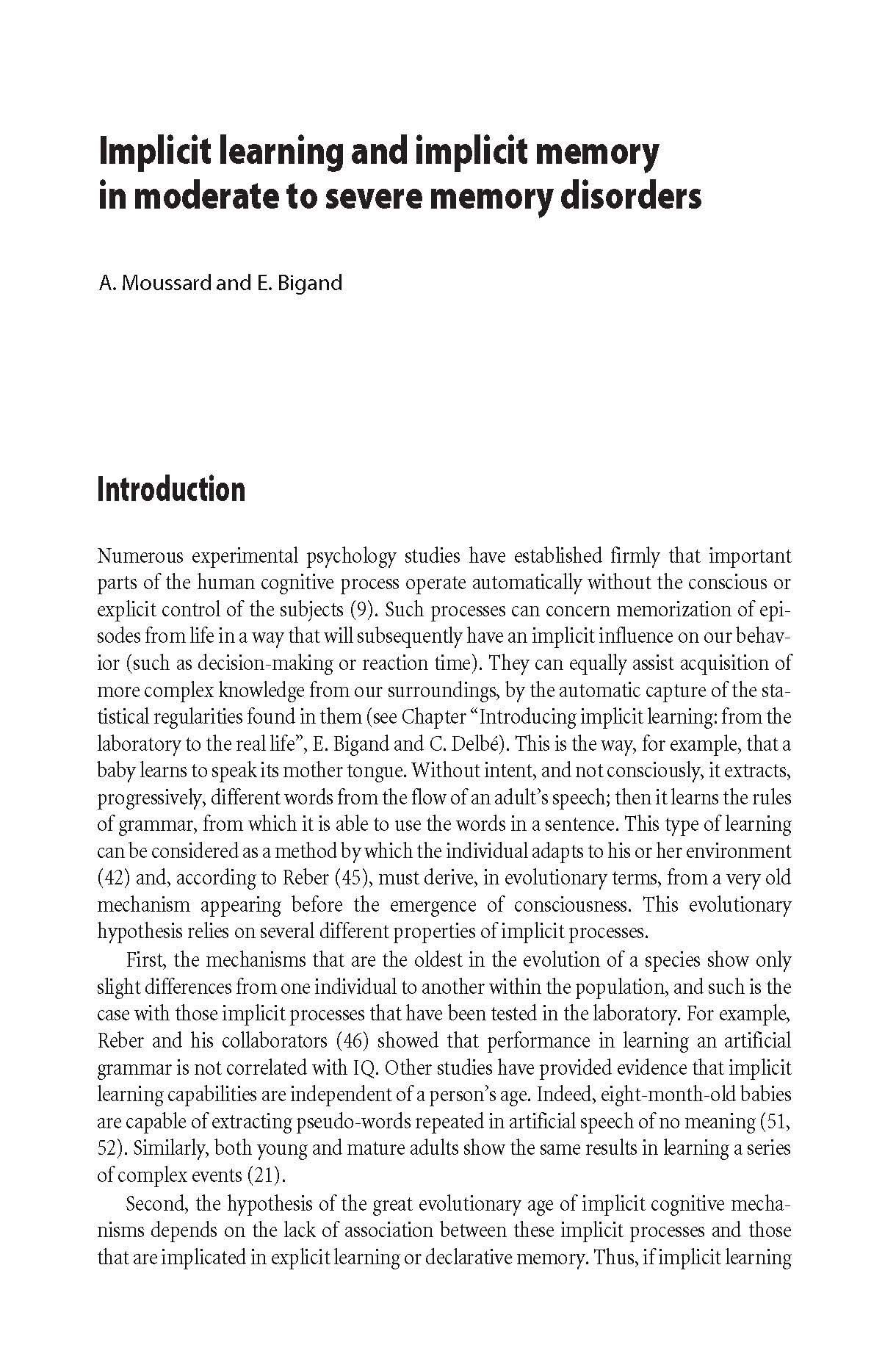Numerous experimental psychology studies have established firmly that important parts of the human cognitive process operate automatically without the conscious or explicit control of the subjects (9). Such processes can concern memorization of episodes from life in a way that will subsequently have an implicit influence on our behavior (such as decision-making or reaction time). They can equally assist acquisition of more complex knowledge from our surroundings, by the automatic capture of the statistical regularities found in them (see Chapter “Introducing implicit learning: from the laboratory to the real life”, E. Bigand and C. Delbé). This is the way, for example, that a baby learns to speak its mother tongue. Without intent, and not consciously, it extracts, progressively, different words from the flow of an adult’s speech; then it learns the rules of grammar, from which it is able to use the words in a sentence. This type of learning can be considered as a method by which the individual adapts to his or her environment (42) and, according to Reber (45), must derive, in evolutionary terms, from a very old mechanism appearing before the emergence of consciousness. This evolutionary hypothesis relies on several different properties of implicit processes.
Implicit learning and implicit memory in moderate to severe memory disorders
